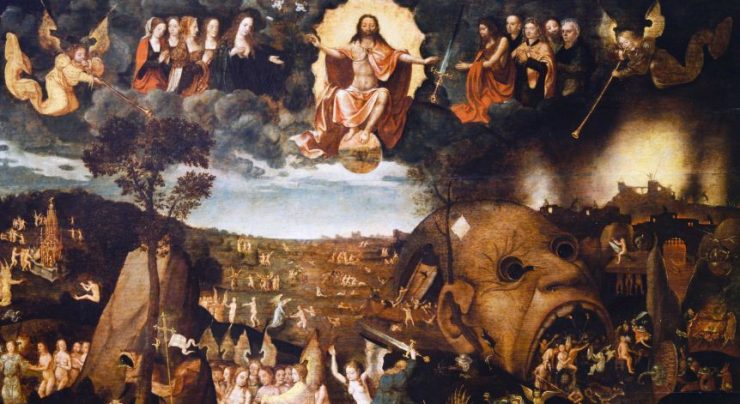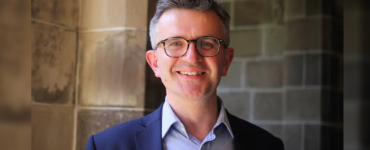From unprecedented bushfires over summer to the global spread of a deadly pandemic, 2020 has felt “apocalyptic” to many.
And while the term apocalypse is used liberally today, it is actually derived from the Greek word for “revelation”, and refers to the unveiling of prophecies.
It’s a common theme in Christian, Jewish and Islamic writing, and for many religious people across the world, the “end of days” isn’t a Hollywood concept, but rather a truth that is yet to unfold or — in some traditions — a time that is already upon us.
But unlike apocalyptic zombie films, religious apocalyptic texts were created not only to scare, but also offer solace.
And as the COVID-19 pandemic intensifies, some religious scholars say that thinking about the apocalypse could offer everyone — agnostics, atheists and theists alike — some semblance of hope.
Death, destruction and hope
The apocalypse has its roots in the Jewish tradition, says Anglican rector and author Michael Jensen.
“It arose because the biblical promises to the people of Israel in the Old Testament talked about a time when the king would be established on the throne in Jerusalem, and when God would be living in the land,” he explains.
“So, the apocalypse says that what is needed — in order to bring about God’s purposes — is not a revolution from below, but God coming down from above to establish his rule through his king in his place.”
But in the Jewish tradition, apocalyptic texts reveal varying futures, says Sydney Jewish Museum education officer Simon Holloway.
“There’s a lot of flexibility in the [apocalyptic] images, rather than, ‘This is a timetable of what is going to happen,'” explains Dr Holloway, a scholar of classical Hebrew and biblical studies.
He gives an example from the fourth book of Ezra, written in about 180 AD, which describes a military messiah coming to Earth.
“He defeats the Romans, who are the oppressive power, and he gains a period of messianic rule, when it’s an ideal time on Earth, but then he dies, and everybody dies,” he says.
Dr Holloway says many of the major Jewish apocalyptic texts were penned by authors under oppressive, imperial rule.
“It’s a way of them imagining a future where the empire has been dealt with by God, and ordinary people can then go to a glorious new future,” he says.
“Even though they’re scary texts to read, in the context they were meant to encourage people that their terrible situation in the present would be righted in the future.”
Despite the early tradition of Jewish apocalypticism, Dr Holloway says there’s little focus on the end of days in the practice of modern Judaism.
‘The end has started’
For Christians, however, that prophesised messiah is Jesus Christ.
“Christianity is essentially apocalyptic, because it talks about the reign of where and when Jesus is going to rule,” explains Reverend Jensen.
“Jesus himself used this type of talk … he uses very dramatic symbolism about the darkness and earthquakes, and terrible times and signs of trouble before God establishes his rule.”
According to Reverend Jensen, Christians believe the death and resurrection of Jesus — the events of Easter — signalled the coming of God, and hence, the start of the end.
But as the exact end date is unknown, Reverend Jensen says Christians throughout the ages have drawn parallels to their experience of hardship and the forthcoming apocalypse.
“For most mainstream Christians, whatever time we’re in, there are earthquakes, there are wars, there are plagues and famines … it’s perpetually a sign that we’re in that time.”
And for Dorothy Lee, Stewart Research Professor of New Testament at Trinity College Theological School, this sense of impermanence puts the responsibility of caring for others, and Earth, on us.
“Ethics is very important in apocalyptic thinking,” she says.
“The biblical apocalypse says that to prepare for the end of the world, we need to live lives of justice, integrity, compassion and goodness — not just for the poor, though it is largely, but also for the planet itself.







Add comment